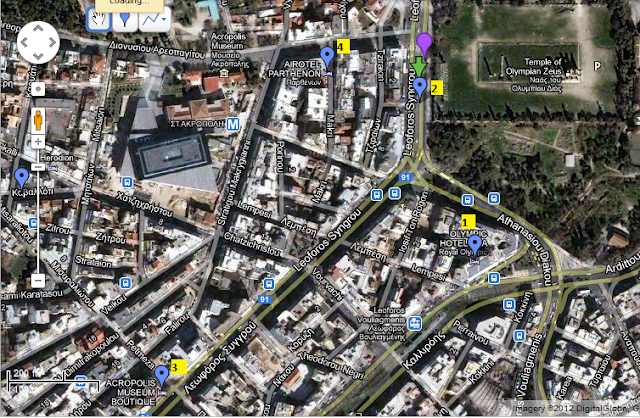Money
The euro has replaced the drachma since January 1st, 2002. The euro (sign: € ; code: EUR) is the official currency of the country and of the eurozone. It is used daily by 332 million Europeans. The euro is divided into 100 cents. Notes are issued in €500, €200, €100, €50, € 20, €10 and €5. Coins are issued in € 2, € 1, 50c, 20c, 10c, 5c, 2c and 1c
Changing Money – Currency
At the airport there are banks and ATM machines. Most hotels will change money for their guests. There are several banks and bureau de change in the downtown area where currency can be converted.
Banking hours
Banks are open to the public from 08:00 to 14:00 Monday to Thursday (to 13:30 on Fridays). They are closed on Saturdays and Sundays.
There is a plethora of ATM’s in the downtown area. Most of them are in front of bank stores, in the Metro stations and in Department stores.
Greek & Foreign Press –Magazines
Major international newspapers and magazines from around the world are sold in several kiosks at Syntagma Square opposite to the Parliament building and in front of McDonald’s. There is a store also closed to the Omonia Square Metro station on Panepistimiou Avenue.
There are also newspapers published in Greece in the English and German language. Amongst them, The Athens News which is a daily English language newspaper focused on Greece and some international news and the German daily paper the Athener Zeitung.
Bookstores
Eleftheroudakis (main store: 11, Panepistimiou Avenue and two smaller stores on 41, Panepistimiou Avenue and 20, Nikis street) is one of the largest bookstores in the downtown Athens area and has a very long tradition. The main store is located on Panepistimiou Avenue closed to Syntagma Square. It offers one of the best selection of books in English in Athens. The bookstore’s offer covers a wide variety of topics, and although it is primarily a Greek bookstore, it has special sections dedicated to titles in English and other foreign languages. A large selection of titles related to Greece can be found and this bookstore can serve as a great source of information and knowledge for tourists visiting Athens whether you are interested in Greek history, travel guides, maps, ancient and modern Greek literature.
Public (1, Karageorgi Servias street, Syntagma Square) has also a section dedicated to titles in English and other foreign languages.
Librairies Kaufman (28, Stadiou Street) Mostly French books, but also some German, English and Spanish.
Politia (1-3 Asklipiou and Akadimias) Greek bookstore with a nice section of English books especially in classics and literature
Bookstop (69, Akadimias & Mavrokordatou 2) Even though the bookstore specializes on foreign language books taught at schools, educational institutions and language schools around the country it also offers a variety of fiction and non-fiction books in the original language. They carry also a broad selection of dictionaries and other reference material from almost all languages into Greek and vice versa. Travel guides and maps by several publishers can be found in the bookstore.



